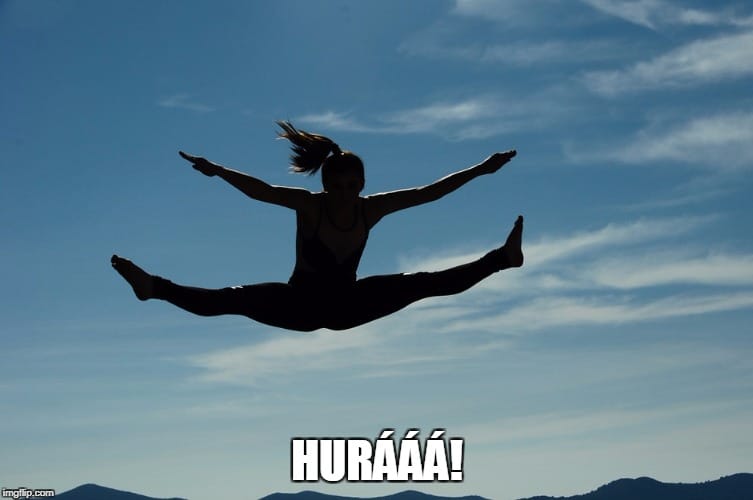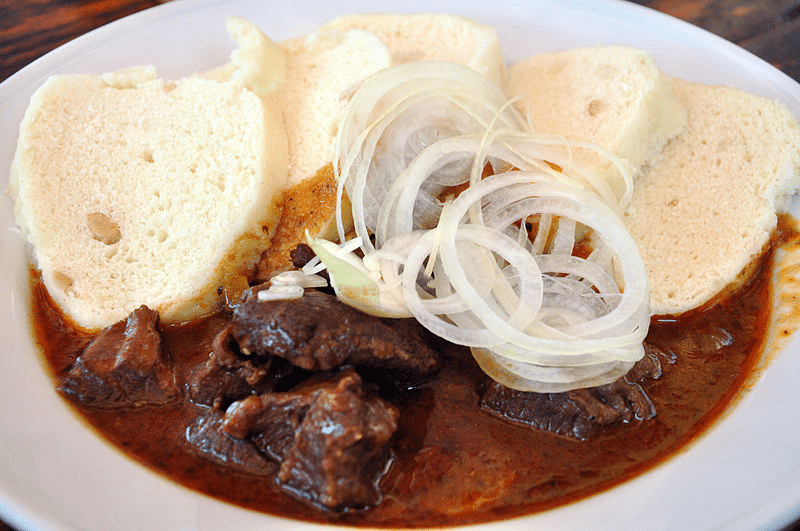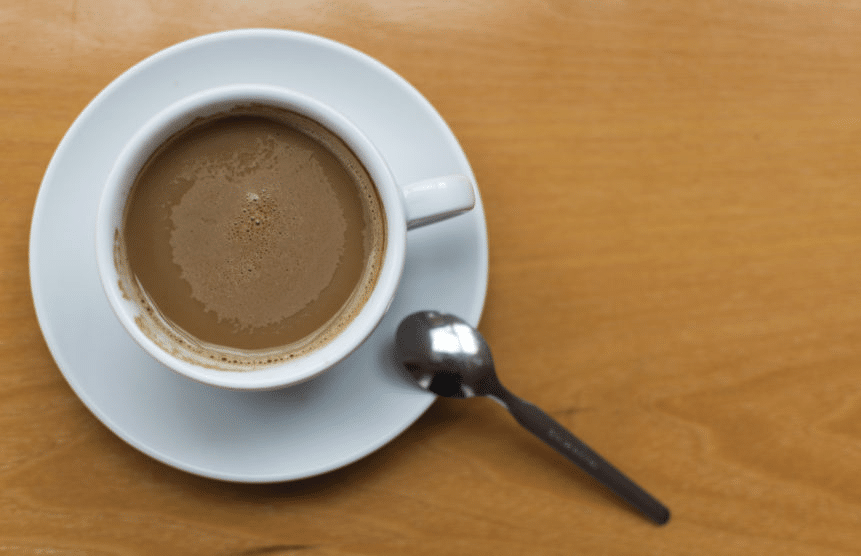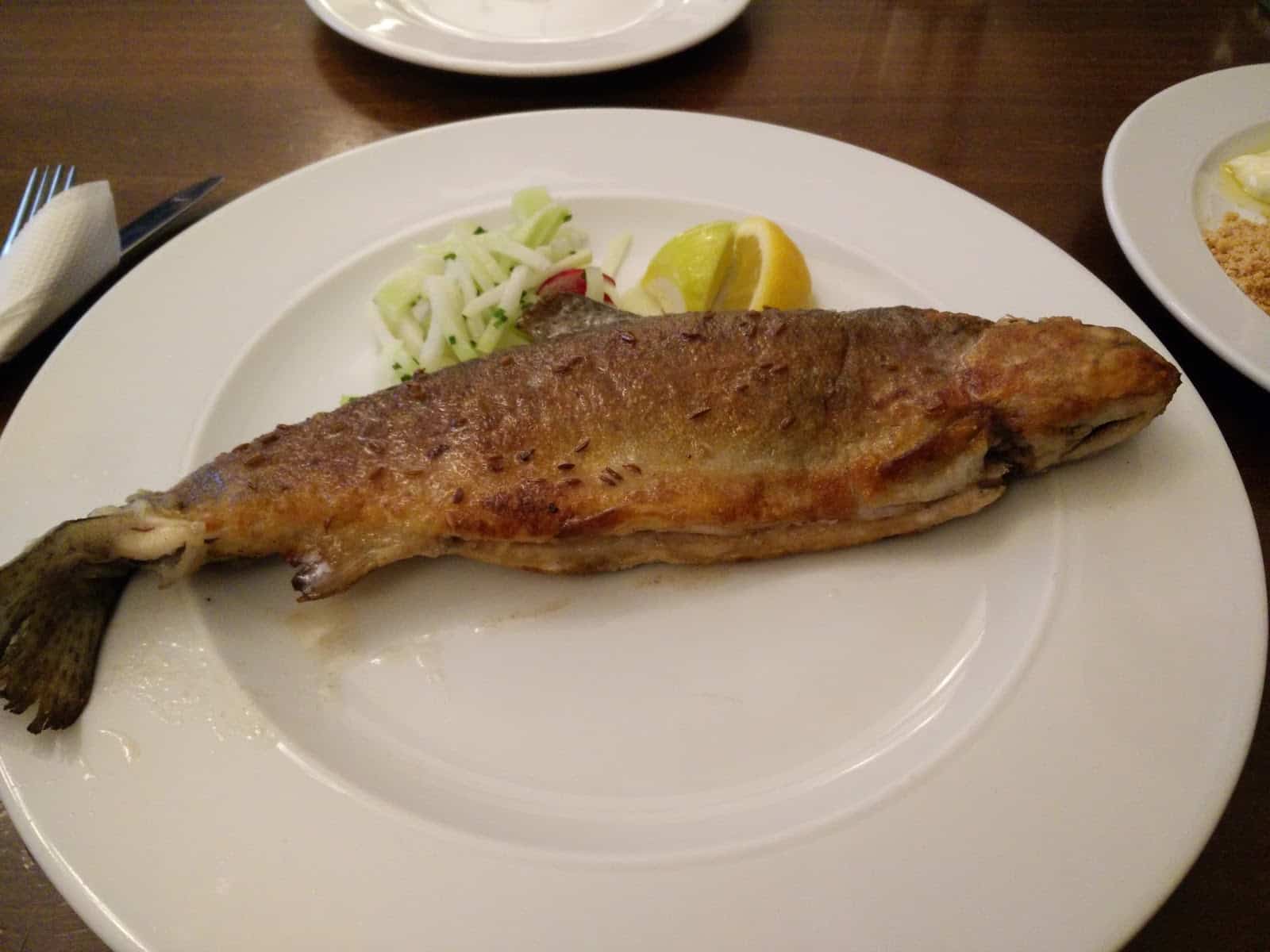3.5 – Ordering food and drinks
If you want to order something in a cafe or restaurant you should use the verb dát si. It literally means ‘to give to oneself’, but colloquially we might think of it as a verb meaning something like ‘I’ll have’ or ‘I’ll take’, e.g. “I’ll have the goulash”, “I’ll take a beer”.
When it is conjugated it it typically has a future meaning, i.e. “I’ll have/take…”. Its conjugation is regular:
The word si ‘for oneself’ goes in 2nd position.
dát si – ‘to have, take (used for ordering in a restaurant)’
|
(já) |
dám si ‘I'll have’ |
(my) |
dáme si ‘we'll have’ |
|
(ty) |
dáš si ‘you'll have’ |
(vy) |
dáte si ‘you'll have’ |
|
(on/ona/ono) |
dá si ‘he/she'll have’ |
(oni/ony/ona) |
dají si ‘they'll have’ |
Now, what case do you think you’ll need for the thing that you are ordering? Did you guess that you’ll need the accusative? If so…
That’s right, the thing being ordered is the direct object of the verb.
Let’s see a few examples:
|
Dám si guláš a knedlíky. I’ll have goulash and dumplings. |
Dám si kávu. I’ll have a coffee. |
|
Dám si sodovku. I’ll have sparkling water. |
Dám si pstruha. I’ll have (the) trout. |
In a restaurant, the číšník/číšnice will ask you:
Co si dáte?
What will you have?
Images used in this document come from these sources.




